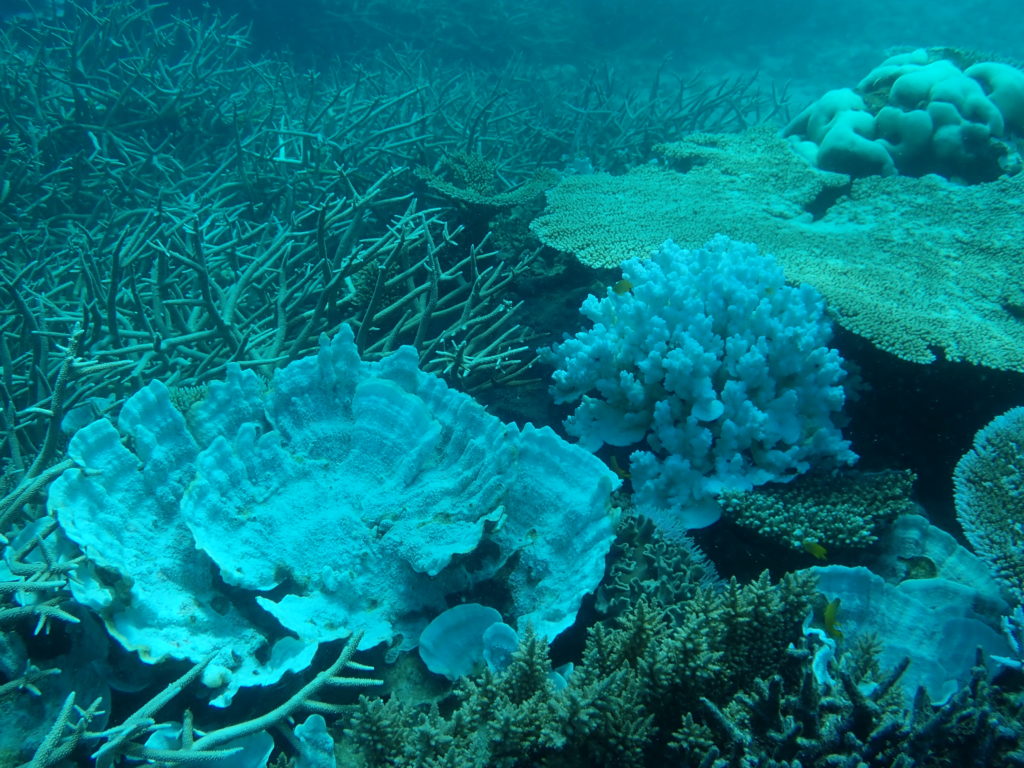Reefs have been facing challenges to their survival for many decades, including issues such as over fishing, nutrient runoff, sedimentation, trash dumping and physical damage through various means. These challenges are now being compounded by the effects of climate change with sea level rise, acidification, increased temperature and cyclone activity.

Reefs provide a number of services to countries all over the globe through foods, medicines, jobs creation and coastal protection. Given the importance of reefs to the livelihoods of people throughout the world, it is essential to protect these precious ecosystems. In the past 30 years we have lost 50% of the worlds coral. Even if CO2 emissions are reduced to meet the Paris climate agreement, it is predicted that only 10% of reefs will survive past 2050. Action is needed now if reef are to survive into the future.
Never before has there existed a global plan to save reefs. This is what 50 Reefs aims to do. Protect reefs that can survive our changing climate, so that they can serve as invaluable seed bank repositories for when the climate does return to more stable conditions, allowing reefs to again spread around the world.
Listen to an interview by the Guardian (June 2020) with Ove Hoegh-Guldberg on how 50 reefs might work.
Contributes
CRE Lab
WWF
Partners
World Wide Fund for Nature (WWF)
Underwater Earth
Bloomberg Philanthropies
The Paul G. Allen Family Foundation
The Tiffany & Co. Foundation
Associated Publications:
- Beyer H, Kennedy E, Beger M, Chen C, Cinner J, Darling E, Eakin C, Gates R, Heron S, Knowlton N, Obura D, Palumbi S, Possingham H, Puotinen M, Runting R, Skirving W, Spalding M, Wilson K, Wood S, Veron J & Hoegh-Guldberg O. (2018) Risk-sensitive planning for conserving coral reefs under rapid climate change. Conservation Letters, 11 (6) e12587 DOI: 10.1111/conl.12587
- Hoegh-Guldberg O, Kennedy E, Beyer H, McClennen C & Possingham H. (2018) Securing a long-term future for coral reefs. Trends in Ecology & Evolution, 33 (12), 936-944 DOI: 10.1016/j.tree.2018.09.006
